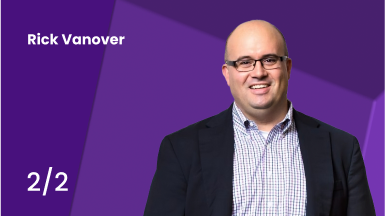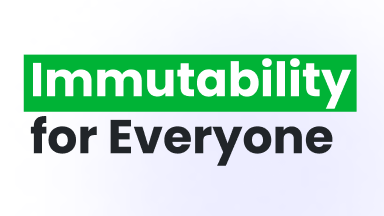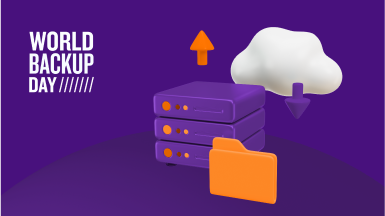Interview with Rick Vanover. Part 1
Who is the Rickatron?
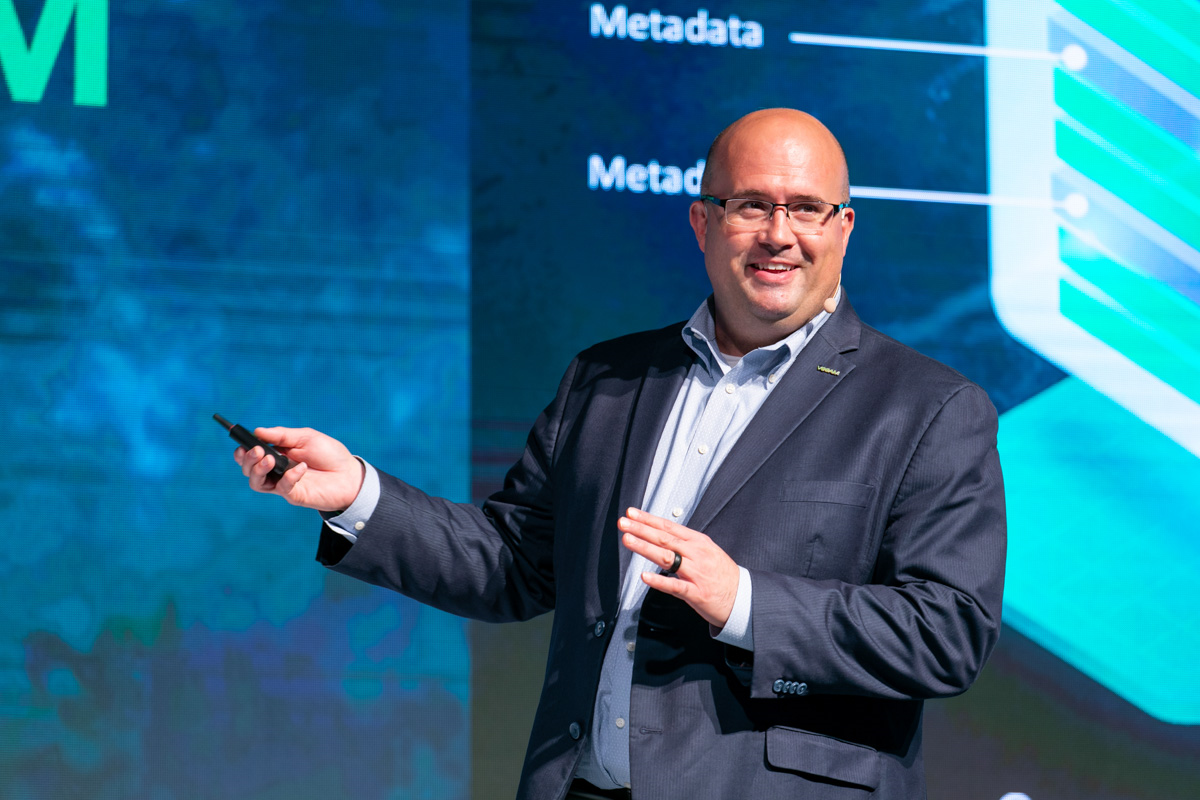
Geoffrey Burke: Hi Rick, it is great to have you here with me today. I will jump right into the first question, who is Rickatron?
Where did you come from before this position at Veeam?
Rick Vanover: So it all started around the year 2000.
My role was system administrator, and as a system admin, even today, you never know what will break and how you will fix it. Things would break, and I would use the Internet to find solutions. The Rickatron was born in November 2000, when I found the Tech Republic website.
In some of the articles, they had a “write the editor” statement with an email address.
I wrote a few times to the editor with corrections for things that were wrong in the articles.
One day, the editor wrote back and said can you write?
I need writers; I said, “Heck yeah,” and I will give it a try.
From there on out, I got the bite of the spirit of technical evangelism. Really, from 2000 on, for 10 solid years, I was a blogger before we called it a blogger. I also did podcasts and webinars.
The nickname Rickatron came from when I used to write for Virtualization Review magazine.
I wrote the "Everyday Virtualization" column on the for their Monthly edition. I sent them a picture for the column, and they made an avatar out of it, in other words, digitized it. (here is below)

Once I had the “Everyday Virtualization” column with that Razzle Dazzle avatar; I was walking around and showing it to my mom and my friends.
I showed it to a friend when we saw the movie Tron Legacy.
I want to say that was 2008 or 2009, and he says: “oh, that's cool. It's very Tron”
That's where the name Rickatron came from.
After that I gravitated to the AR Destine font, which is the font I use for it.
I'm all about the nickname. The Ricatron list of approved persons always involves a nickname.
It all changed in 2010 when I joined Veeam.
The fun stuff became the job and here I am.
Geoffrey Burke: Your career has spanned from the very beginning of IT evangelism to the present.
You have witnessed the entire evolution of this genre
When did the corporate world start to really take this seriously?
Rick Vanover: I believe that companies started taking it seriously during my time as an author.
About the time that I wrote for Tech Republic and after when I added Tech Target and 1105 Media for the Virtualization Review magazine.
I also did some stuff for Forbes.
It was a small list of people who had experience back then.
However, everything changed after the dawn of WordPress, and then independent blogs emerged. You also must understand why people would want to blog.
I enjoyed it because I like telling stories, and honestly, it made me a better Sys Admin in the end. It made me a better delivery engineer.
My favorite story of this is about a fellow named Scott Lowe. Not Scott Lowe, VMware writer VCDX now in the Kubernetes world, but the other Scott D Lowe, who is now a partner at Actual Tech Media. He went into an interview once and in that office above the printer taped to the wall was a printing troubleshooting list that he had written! During the interview, he mentioned that this company was already using his expertise.
You could say that WordPress democratized the space.
Now make no mistake, I could have progressed down that path because there was actually very good value of an independent voice, which is hard to get now.
If you work for a partner, you work for a brand that's kind of it.
It really puts a blinder on who you are, but if you are a traditional customer end user, then you have a much more balanced view, and I don't have that anymore. I look for that and when I build memberships in programs. That's why you got to find people where they are, and today it's things like GitHub, it's YouTube, it's blogs, it's podcasts, its user groups, it’s some of these other modes like Reddit, you know that people can engage in, and it's harder but it's multi-dimensional.
I love being part of it.
Now as you know my time and attention every day goes entirely to Veeam.
So I don't have the wherewithal to get into writing like a consumer tech blog. I had the itch a couple years ago and I wrote a post for The Points Guy, one of those travel Blogger type things and I am actually trying to get back in there.
The role of IT evangelist
Geoffrey Burke: You could almost say that a tech evangelist is a technical person with an inner artist trying to breakout. You need the knowledge but also entertainment value.
Rick Vanover: So that's the hardest part of talent acquisition for this type of role.
I look for a spark.
I look for that little angle of beyond what they do. There's what you know and then there's how you show it.
That's what I look for.
My team has different levels of experience.
There are different personalities.
What I don't want is a flock of the same people.
I have also learned, and this is more related to the strategy of what I do at the Veeam 100 program, that the job is the job, but when you write stuff or do a podcast or a video, that might be 5% of your work, but it might represent 40% of your satisfaction.
If I can find that in the person, then I know they'll do well in these roles.
The Veeam communities origins and phenomenal success

Geoffrey Burke: When you joined Veeam in 2010, they didn't have a community program. Was that what they specifically brought you in for?
Rick Vanover: In fact, no, in 2010, I took 2 roles.
One was evangelism and social media.
That was our community at the time.
Doug Hazelman was my manager, and the second kind of side hustle role that I took was content blogging and webinars.
Here’s a side story to that, about five years ago we did this graph of all Veeam webinars and their effectiveness.
They had to do the graph twice, one with me and one without me because I skewed the results with so much data.
As for the start of the community, it was late 2014 and we did this road show up and down the East Coast, Boston, NY with some press and analysts. At one point Ratmir was looking out the window and says, “Rick, it's time! We need an MVP program, something like the Microsoft MVP program, and now we've got an industry event to anchor it with.”
In November 2014, we had just announced the Veeam Agent for Windows.
We had a new ecosystem to go with and we have a very good and happy fan base.
We had these three conditions and Veeam is notorious for getting into something maybe just before it's ready, seeding the market, learning on the small base, and iterating it right for scale. I actually see a lot of this with Object First as well.
So, in Late 2014, we were given the green light to start a community.
I won't say that I lead it all innitially. My VP at the time was the executive owner, but I was instrumental in getting it done.
In fact, that also led to my first hire here, Kirsten Stoner, who just this year celebrated 10 years at Veeam.
By the way the name that I wanted to give the program was “The Veeam 100” but was told “We'll never have 100” so we went with something double alliterated, so Veeam, Vanguard V&V. However fast forward to today and I got my way in the end.
Why vanguards?
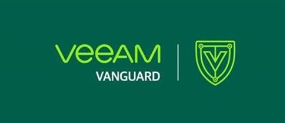
Geoffrey Burke: Who came up with the name Vanguards?
Rick Vanover: It was Luca Dell’Oca who, at the time, was on our team.
He's now a top solution architect for our service providers in EMEA based in Italy, but he came up with the word Vanguard. We wanted something that wasn't too combative, so we threw out words like Victors and Valors. It was not as if we were playing Dungeons and Dragons or something like that.
Later, it was important to make the three-fold strategy that we have now.
As you know, Vanguards are accepted based on their external identities and activities, Legends are accepted on fandom in the Veeam R&D Forums and Veeam Community Hub and then Veeam MVPs are Veeam Employees who evangelize outside of their job description.
100 is a good number, I feel like we are right at that maximum, and I have strategies ready as well just in case we get too big. As you know Veeam just keeps growing.
Though it does hit hard for folks when they get removed from the communities.
We've had scenarios where people’s jobs or roles change, which no longer coincides with being part of the Veeam 100. One person changed roles and started shooting movies, so they were no longer working with Veeam.
Things like that can take people out of the programs, but you know, measuring activity content and all that is hard work.
Madalina, Safiya, and Nikki do a lot of that.

